LATEST INSIGHTS
Your Present Location: LATEST INSIGHTS-
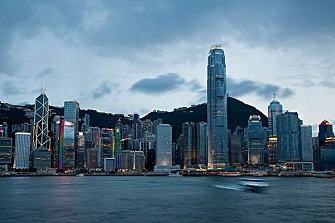
Politicians told HK not a chip for bargaining
Chinese officials and experts have urged politicians in the United States to stop using the situation in Hong Kong as a bargaining chip for negotiations or as leverage for fueling competition with Beijing. Senior politicians such as US Vice-President Mike Pence and House Speaker Nancy Pelosi have spoken out on or pushed legislation concerning the recent violent protests in the city. Pence angered China on Monday by telling the Detroit Economic Club that "for the United States to make a deal with China", Beijing needs to "respect the integrity of Hong Kong's laws".
2019-08-21 -
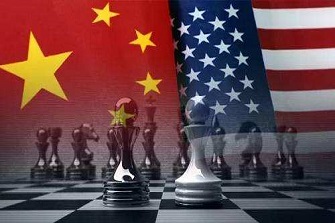
Zhang Jingwei: Equal dialogue key in Sino-US trade talks
The leaders of China’s and the United States’ economic and trade consultation teams spoke over the phone on the evening of July 9 on the implementation of the consensual exchanges agreed by the two nations at the recent G20 summit. The Americans appear to be showing goodwill for the upcoming round of talks. The US Department of Commerce has announced that it will partially lift the Huawei ban by removing restrictions on exports to the firm and eliminating tariffs on 110 Chinese products that were previously hit with a 25% levy.
2019-08-21 -
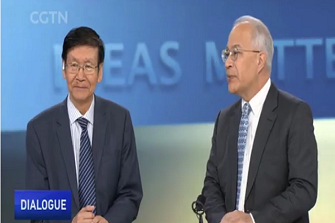
Are China-U.S. trade talks back on track after Trump's suspension of some tariffs?
The United States announced on Tuesday that it will suspend certain tariffs on a range of Chinese imports until mid-December for "health, safety and national security" factors, while saying that the 10-percent tariff on other items will go into effect as planned on September 1. As the next round of trade talks is scheduled to take place in September, does the announcement by the Office of the United States Trade Representative (USTR) raise hopes for further progress?
2019-08-20 -
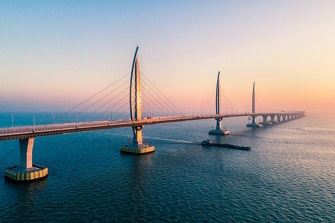
Wang Wen: China and world can learn from each other
From this week, Wang Wen, Executive Dean of RDCY, opened the new column “Wang Wen on Changing World” in Global Times (English edition). The first artical "China and world can learn from each other" was published on August 20, 2019.
2019-08-20 -
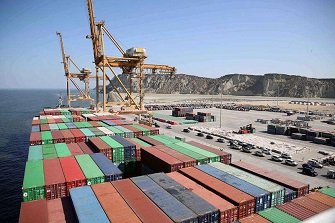
72 years after independence, what has Pakistan achieved?
Pakistan is celebrating the 72nd anniversary of Independence Day amid escalated tensions with India after the latter revoked the special status of Jammu and Kashmir, flaming a territorial dispute that has dragged on for over seven decades. Pakistan responded by downgrading diplomatic relations and suspending bilateral trade ties with India. It also expelled India's high commissioner and vowed to challenge the decision at the UN Security Council.
2019-08-20 -
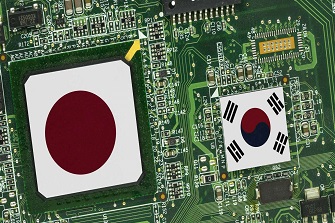
U.S. to take role in the latest Japan-South Korea rift?
Tensions between South Korea and Japan are growing as South Korea announced the plan to drop Japan from its "white list" of countries with fast-track trade status from September. This tit-for-tat move followed Japan's action to remove South Korea from its "white list" after an earlier decision in July to restrict exports to South Korea of three key, high-tech materials.
2019-08-20 -
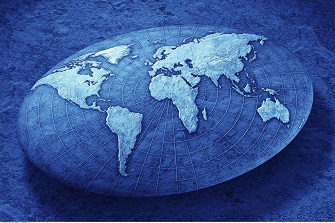
William Jones: Beware the policy of 'strategic tension'
Major unrest in Hong Kong, provocative moves by India's leader in Kashmir, upgraded arms sales to Taiwan, and an unraveling of the nuclear non-proliferation regime are all indications of a heightened degree of tension in the world community. And this is occurring against the background of increased trade tensions and a general sense that the world is facing an imminent collapse of the international financial system.
2019-08-20 -
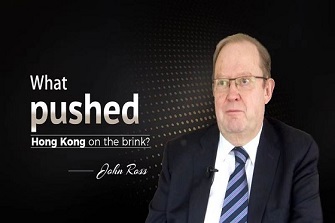
John Ross: What pushed Hong Kong to the brink?
Hong Kong is now in its tenth consecutive week of mass protests. The violent clashes between police and protesters have grabbed global attention.
2019-08-19 -
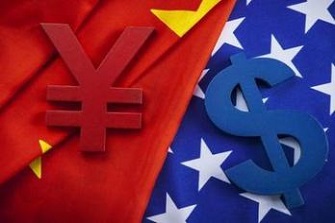
Zhao Minghao: Trump Pushes China-US Trade Negotiations Toward Long-term Impasse
By deciding to impose a 10-percent tariff on the last remaining freely traded $300 billion of Chinese exports to the US starting in September. US Department of the Treasury designated China as a “currency manipulator” a designation. China decided to suspend its purchase of US agriculture products. Though China and the US had agreed to start their 13th round of trade talks in Washington in September, we have reasons to worry these anticipated negotiations may not occur as scheduled as tensions escalate between the two countries.
2019-08-19 -

Danilo Türk: China on course to a promising future
2019 marks the 70th anniversary of the founding of the People's Republic of China (PRC). How far is China away from realizing its rejuvenation? How hard will the process be? How will China's development influence the world in the future? Global Times interviewed Professor Danilo Türk (Türk) on these issues.
2019-08-19 -
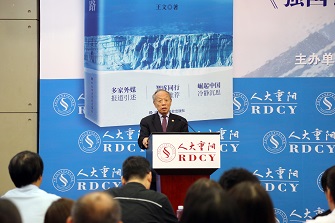
Fearless spirit will safeguard China’s future
The article was complied based on a speech by Li Zhaoxing, former Chinese foreign minister, during a conference on the book Great Power's Long March Road: The views of China's rejuvenation and the future of the world after hundred countries' visit written by Wang Wen, executive dean of the Chongyang Institute for Financial Studies, Renmin University of China.
2019-08-19 -

Long Xingchun: Pakistan unrelenting on Kashmir issue
Pakistan is prepared to "fight to the end" over the Kashmir issue if necessary, Prime Minister Imran Khan said on Wednesday during a speech from Pakistan-controlled Kashmir. "I don't want war but it's clear now that they [India] don't want to talk," Khan said. Pakistan's 73rd Independence Day was celebrated on Wednesday as "Kashmir Solidarity Day," so as to express support for the people of Kashmir.
2019-08-19 -
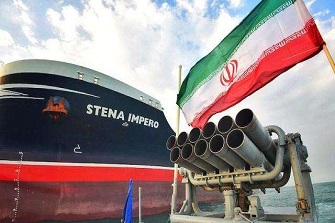
Hua Liming: Iran worried about effect of Brexit on nuclear deal
Will Johnson toe US President Donald Trump's line? If so, will Britain's withdrawal spell doom for the deal? Boris Johnson, who became the United Kingdom's newly elected prime minister on July 23, is a hard-line euroskeptic politician. While Europe is keenly following how Britain's Cabinet would proceed with Brexit under Johnson's leadership, in the Persian Gulf, Iranians are concerned about the fate of the Iran nuclear deal, or the Joint Comprehensive Plan of Action, in the post-Brexit era.
2019-08-16 -
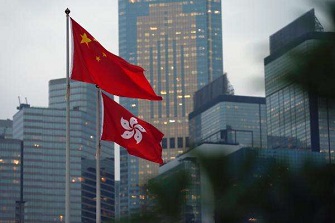
US playing Hong Kong card dangerous
The US is openly playing Hong Kong as a card to exert strategic pressure on China amid the trade negotiations and escalating contention between the two countries, said Chinese experts, as senior US officials, institutions and foundations have increasingly lent support to prolonged riots in the special administrative region.
2019-08-16 -
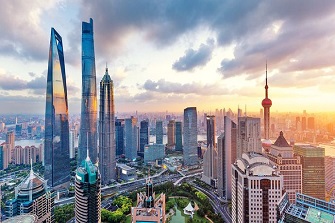
Zhao Xijun: China’s financial opening-up has righteous motives despite Western skepticism, distortion
Recently, China announced a slew of measures to further open its financial market. The 11 new measures encourage overseas financial institutions to participate in the establishment of, and invest in, asset management subsidiaries of commercial banks. They also allow them to set up and invest in pension management companies. Investment restrictions of overseas personal insurance companies will be completely scrapped in 2020. Those measures serve as a milestone, marking a new stage of China's financial opening-up.
2019-08-16 -
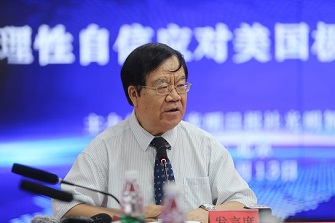
Protectionist and unilateral behavior will disrupt world economy
Chinese experts sounded the alarm at a seminar on China-U.S. trade ties in Beijing, warning that protectionist moves by the U.S. that further escalate trade tensions will disrupt the global economy. Experts noted that China and the U.S. are the biggest trading partners and important investment destinations. They say that time has always proven that China and the U.S. stand to benefit from cooperation, and lose from confrontation.
2019-08-16 -
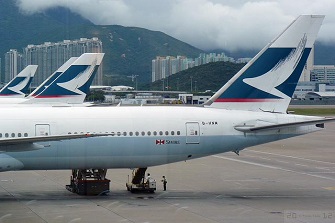
Cathay Pacific shares slide as carrier entangled in HK turmoil
Shares of Cathay Pacific Airways closed nearly 5 percent lower in Hong Kong on Monday after the company sent a sternly worded internal letter to employees during the day warning them not to participate in any illegal protests. On Friday, the company received a scathing air safety warning from the Civil Aviation Administration of China. The warning pointed out that the carrier's flight personnel had participated in violent street protests, with serious hidden threat on aviation safety.
2019-08-15 -

Bian Yongzu: Driven by market demand
Use of the renminbi is an increasingly common choice of countries participating in the Belt and Road Initiative. Some Western scholars misunderstand the China-proposed Belt and Road Initiative believing it is a means to promote the internationalization of the renminbi. In fact, although there is a certain relationship between the initiative and yuan's internationalization, they are two different issues.
2019-08-15 -
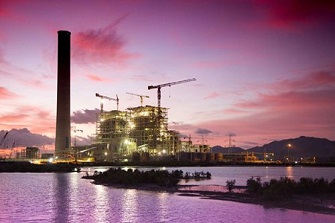
Ding Gang: China powers the Indonesian dream
Seated opposite us in a conference room, Tulus Martini, a young Indonesian mother, was answering our questions in fluent Chinese. A blue sign was hanging on the wall. It read "Jawa 7 Coal-Fired Power Plant. "In 2017, China Energy Engineering Group Zhejiang Thermal Power Construction Co Ltd started building this power plant in Kota Serang in the northwest region of Java, Indonesia. The plant is a key project of Indonesia's medium-term plan to add 35 million kilowatts of generation capacity, as well as China's first overseas mega-kilowatt class thermal power project.
2019-08-15 -

Wang Peng: Trade conflict will prompt China to develop a more independent monetary system
The China-US trade war began over a year ago, the US' economic bullying has since spread to the financial and currency sectors as the US has designated China as a currency manipulator.This is not the first time the US has waged a trade war, and China is not its first victim. Looking through history, the US has always gained upper hand and left its opponents with a "lost decade" or decades. In this history, there are lessons to be learned.
2019-08-15
























































































 京公网安备 11010802037854号
京公网安备 11010802037854号





